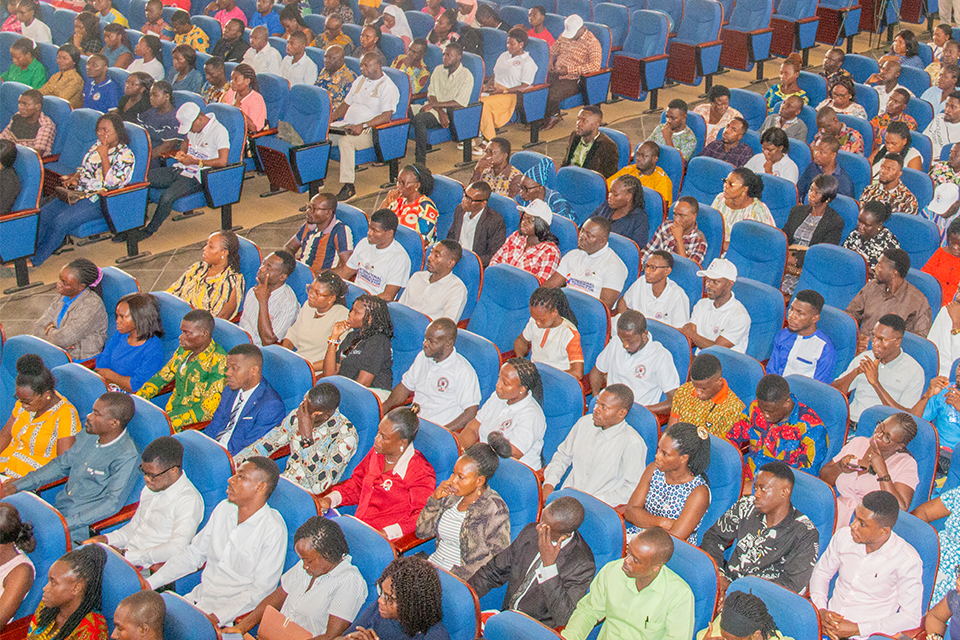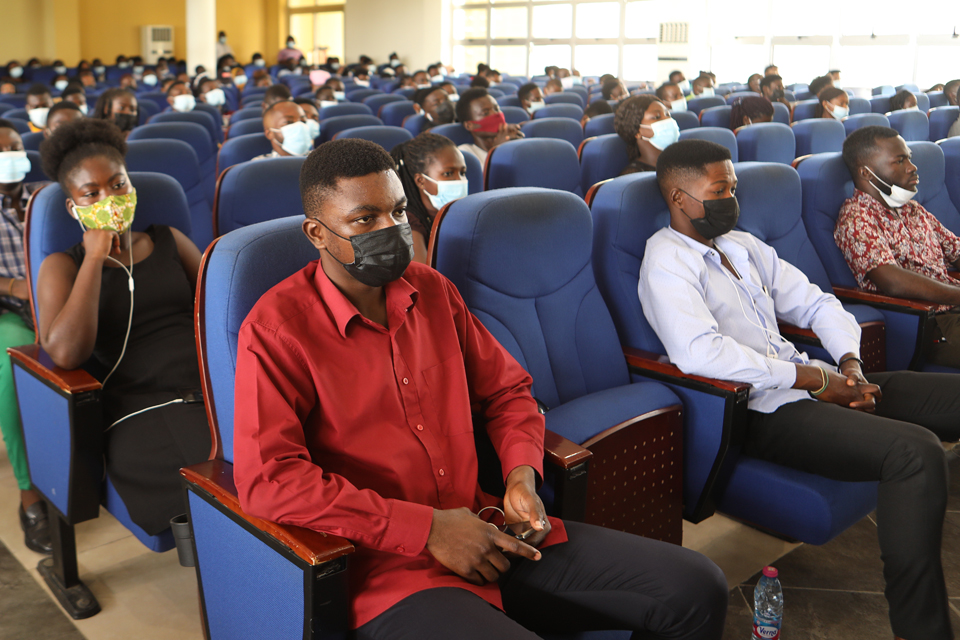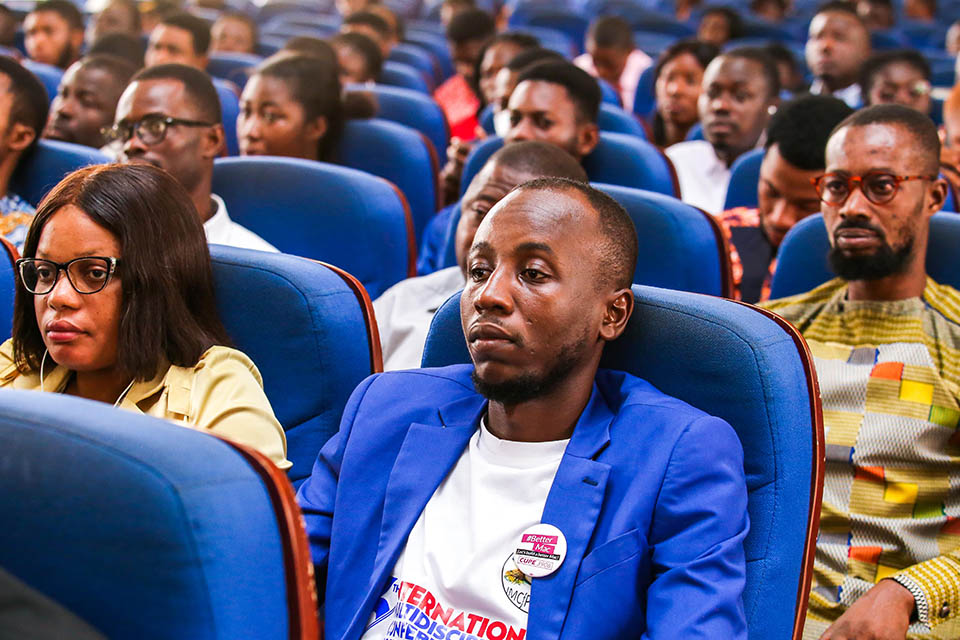GRASAG-UEW Explores Digital Transformation in Education at 8th IMCfPS

The Graduate Students’ Association of Ghana (GRASAG), University of Education, Winneba (UEW) Chapter, has successfully held its 8th International Multidisciplinary Conference for Postgraduate Students (IMCfPS).
This two-day event, themed “Digital Transformation in Education: Global Challenges, Local Solutions,” gathered scholars and experts to explore the profound impact of technology on education from Thursday, 1st to Friday, 2nd August, 2024, at the North Campus of UEW.
The conference aimed to tackle the challenges of digital transformation in education, focusing on ensuring equitable access to digital tools and equipping educators and students with the necessary skills to thrive in a digital landscape.
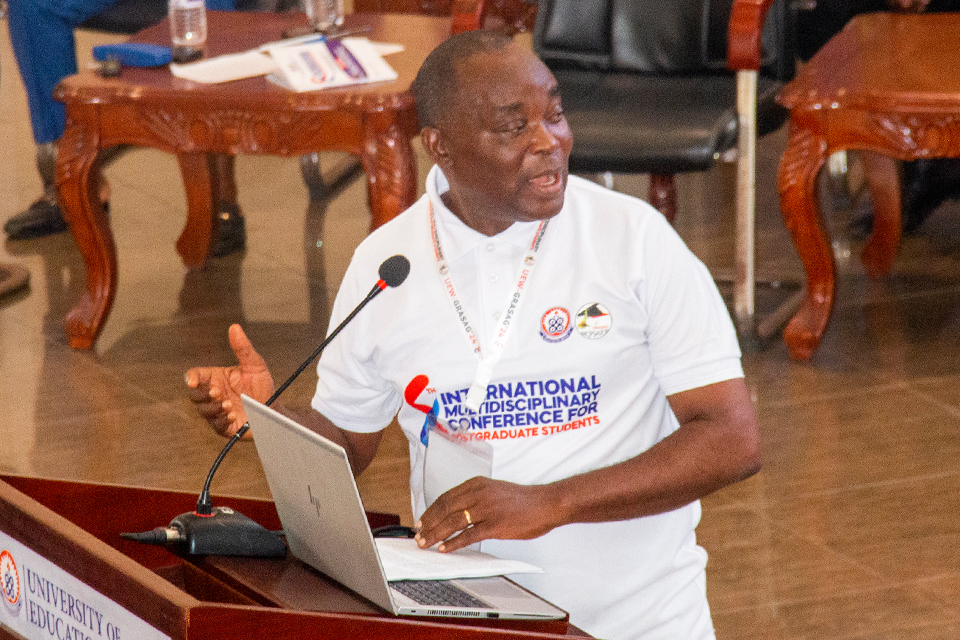
Prof. Samuel Kwesi Asiedu-Addo, Chairman of the IMCfPS Planning Committee, inaugurating the intellectual gathering, underscored the importance of exploring new ideas, sharing knowledge, and inspiring each other. He highlighted UEW's commitment to digital transformation, noting the acquisition of a 75-inch smart board from Republic Bank PLC as a step towards providing students with an interactive and immersive learning platform.
"Technology has become the driving force for instruction and learning at this critical juncture in education. Digital transformation in education is more than just incorporating new technologies; it is about reshaping the way we teach and learn to better meet the needs of our communities," Prof. Asiedu-Addo stated.

Prof. Charles Kojo Assuah, Dean of the Centre for International Programmes (CIP), UEW, emphasised the relevance of the conference theme to the evolving landscape of education in the 21st century. He acknowledged the pivotal role of innovation and adaptation in shaping the future of education, urging participants to leverage digital technologies to enhance teaching and learning.
Prof. Assuah highlighted the complex challenges posed by the global shift towards digitalisation but also pointed out the vast opportunities for innovation and collaboration. He called on participants to engage in meaningful dialogue, share experiences and expertise, and collectively envision a future where digital transformation drives educational excellence and societal advancement.
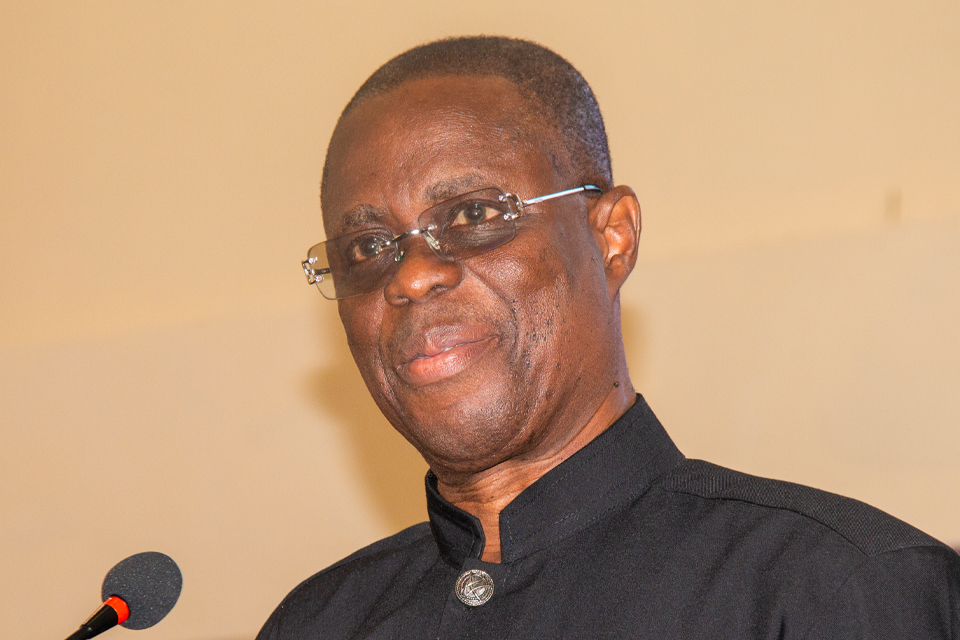
The keynote speaker, Prof. Joseph Ghartey Ampiah, former Vice-Chancellor of the University of Cape Coast, stressed the importance of embracing digital technologies to enhance teaching, learning, and administration in educational institutions. He cited the COVID-19 pandemic as a catalyst for the adoption of digital technologies in education and addressed the challenges of digital transformation, including technological barriers, financial constraints, and cultural and social obstacles.
Prof. Ampiah stressed the need for strategic investment, careful planning, and sustained funding to ensure effective digital transformation efforts. He highlighted various AI-powered tools and their applications in education, including content creation, research, and data analysis, and underscored the importance of digital literacy, responsible use of AI, and the need for policies and governance structures to guide technology adoption in educational institutions.
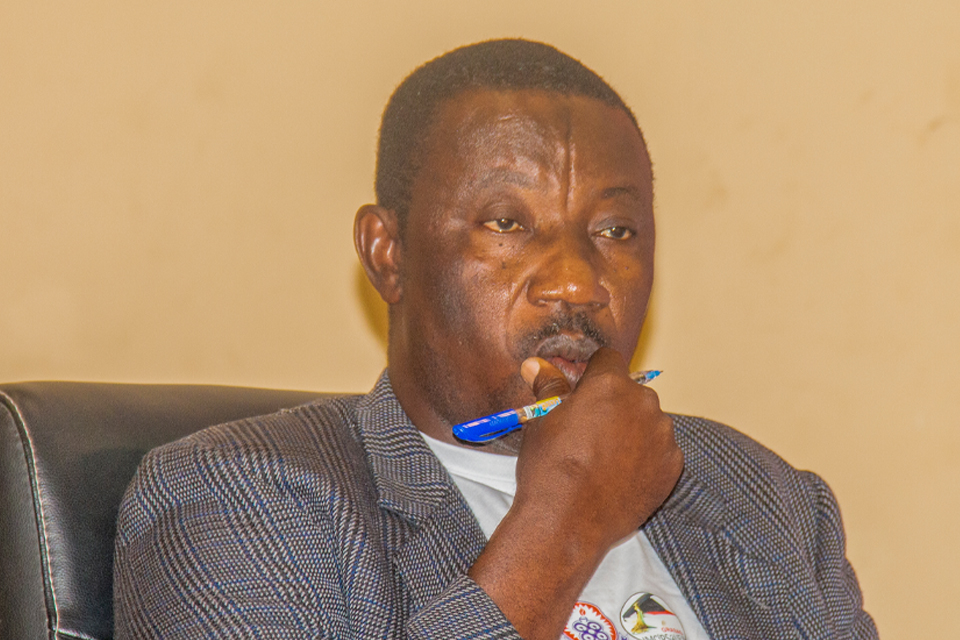
Prof. Imurana Awaisu Braimah, Dean of the School of Graduate Studies, UEW, underlined that technology had become an essential tool in education and that individuals must become technically savvy to remain relevant. He posited that the conference was aimed at equipping graduate students with the necessary skills to effectively utilise technology in their studies and research. He highlighted the need for ethical standards in the use of technology, warning that compromising these standards could have dire consequences.
He stressed the importance of integrating technology with traditional teaching methods, emphasising that technology should support learning, not replace it. He encouraged graduate students to take advantage of research opportunities and technical support available at UEW.
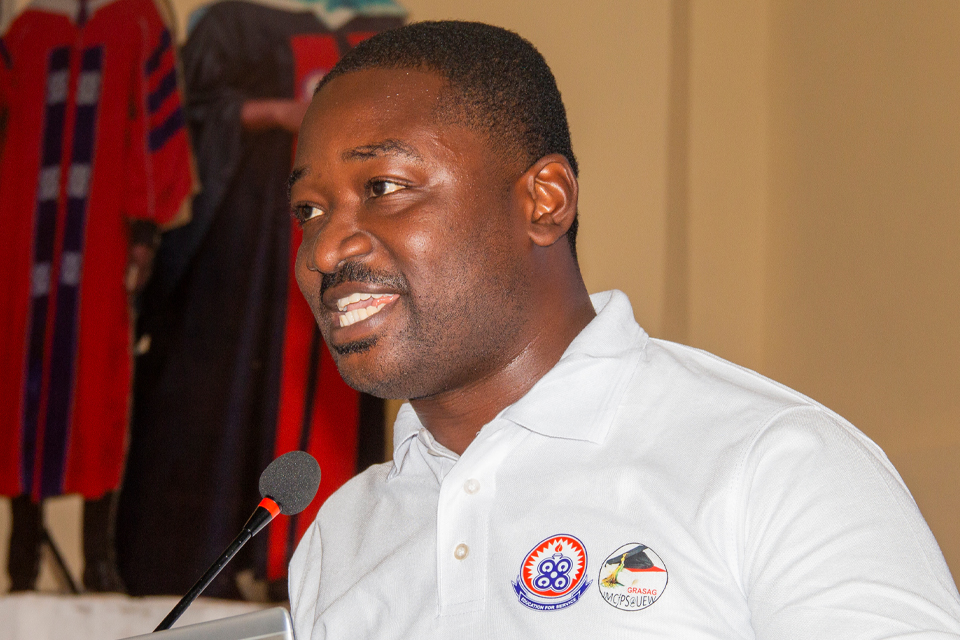
Dr. Emmanuel Ahene, a Cyber Security Expert, implored the need for educators to adapt to the changing demands of the industry and leverage technology to enhance teaching, learning, and research. He noted that digital transformation is no longer a choice but a necessity in education, citing the fourth industrial revolution and the integration of technologies into educational systems.
He urged educators to lead the way in driving digital transformation and creating local solutions that address the specific needs of Ghana's education system. He encouraged the audience to embrace digital technologies and work together to ensure transformation in education and research to meet industry demands.
The 8th IMCfPS at UEW stands as a testament to the university's commitment to pioneering digital transformation in education, fostering a collaborative environment where scholars and experts can share insights, inspire innovation, and pave the way for a digitally inclusive future in education.
